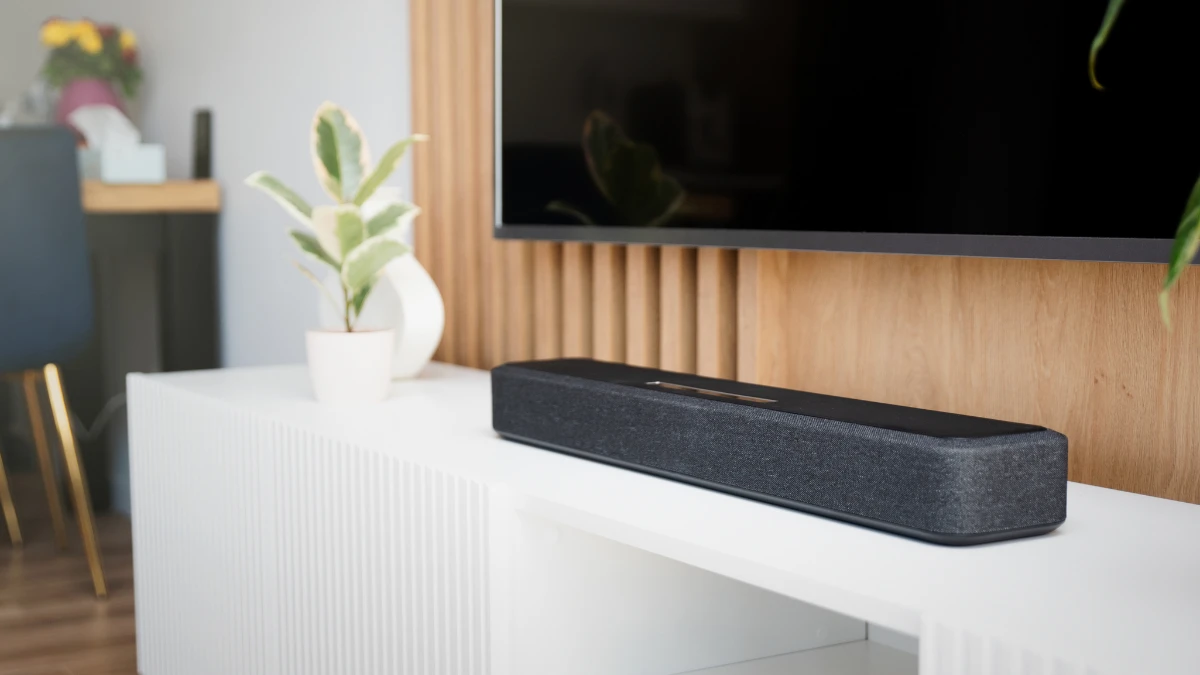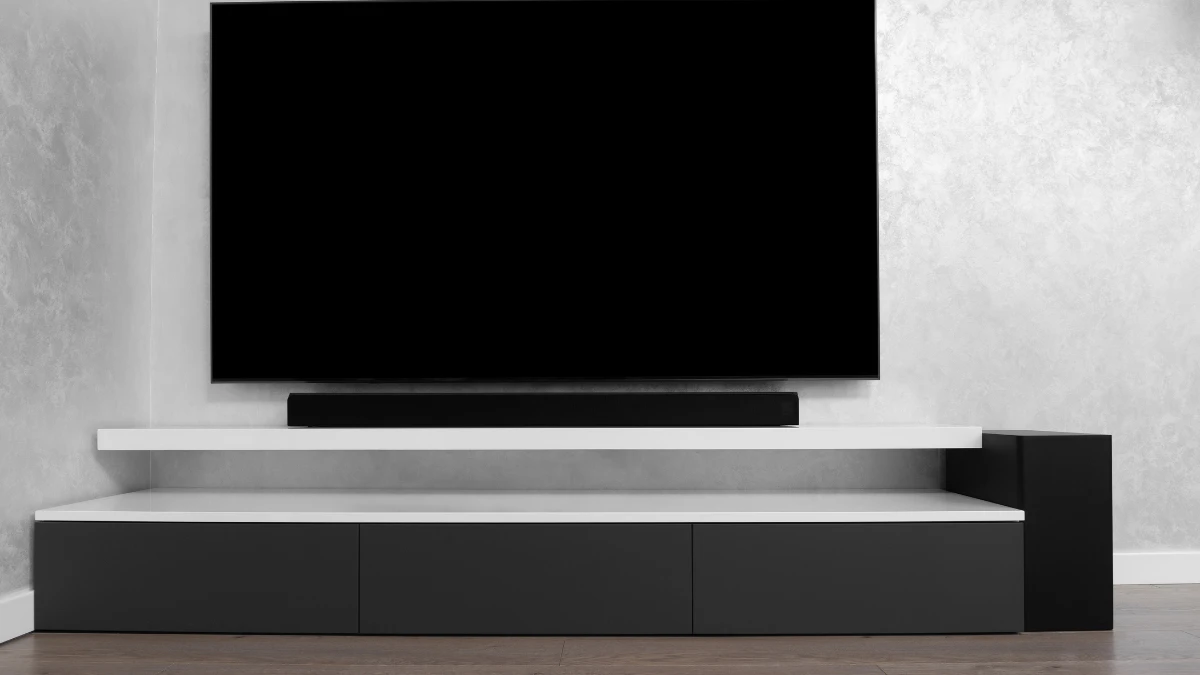Boasting slim dimensions, soundbars are becoming increasingly popular as entertainment for home audio. Specifically designed to overcome the limitations of built-in television speakers, they provide significant enhancement and audio immersiveness.
Soundbars have additional functions such as surround sound capabilities and Dolby Atmos, which enhance the viewing experience even more.
This article will discuss the definition and main functions of a soundbar, explore its various advantages for users, and also provide an overview of the relevant regulations governing its use and sale in Indonesia.
What is a Soundbar?

A soundbar is a slim speaker device that aims to enhance the audio quality of a television. Generally placed near the TV, this device is capable of providing a more immersive and high-quality viewing experience than the TV’s built-in speakers. Often, this device also equipped with additional features such as subwoofers, surround sound, and Bluetooth connectivity.
The Functions
Soundbars have many functions to maximize audio on devices in your home. Here are some of the functions of a this device that you can take advantage of:
- Improve TV sound quality: Provides clearer sound, stronger bass, and a wider soundstage, making the TV viewing experience more enjoyable.
- Improves dialog clarity: Improves dialog clarity when watching movies, so you won’t miss important conversations.
- Play music: As a Bluetooth speaker to play music from your smartphone or other devices.
The Advantages

Soundbars offer several advantages, such as richer and more dynamic sound quality, ease of use, and space-saving. Here are some details of the advantages of this device:
1. Better sound quality
The main advantage of using a soundbar is its better sound quality. This device is equipped with larger speakers and drivers than the built-in TV speakers, resulting in clearer, richer, and more dynamic sound.
2. Immersive surround sound
For movie and game lovers, this is what you’ve been looking for! Soundbars can create a surround sound effect that makes you feel as if you are inside a movie or game.
3. Ease of use
This device is easier to use than other speakers or home audio systems. They are easy to install and use, simply by connecting them to your TV via an HDMI cable or optical audio cable.
4. Space saving
If you have a small viewing room, this device is a great option that you can use. This device have more compact dimensions than home theater speaker systems, making them more space-efficient.
5. Features
Some device come with additional features such as Bluetooth connectivity, wireless subwoofers, and support for audio technologies such as Dolby Atmos.
The Regulations in Indonesia

Soundbar uses communication technologies such as Bluetooth or WiFi that operate within a specific frequency spectrum. In Indonesia, any Bluetooth or WiFi-based wireless device is required to have DJID (Directorate General of Digital Infrastructure) under the Ministry of Communication and Digital (KOMDIGI).
Soundbar regulations are based on KEPMEN No. 260 Tahun 2024 and No. 12 Tahun 2025, which require all Bluetooth or WiFi-based devices to meet specific technical standards before being sold in the country.
The DJID certification ensures that the product meets government safety and quality regulations and does not interfere with other communication devices. The certification process involves technical testing, such as frequency adjustments, safety checks, and compatibility with the surrounding environment.
Once the tests are completed, products that pass are listed in a Test Result Report, which confirms that the product is safe and ready for sale in Indonesia. This report reassures customers that the product meets technical standards and is secure.
For companies wanting to sell soundbars in Indonesia, our type approval services are available to assist with this process. This service includes preparing technical and legal documents, conducting required testing, ensuring compliance with regulations, helping companies streamline the certification process, and giving consumers confidence in certified products. [UN]

